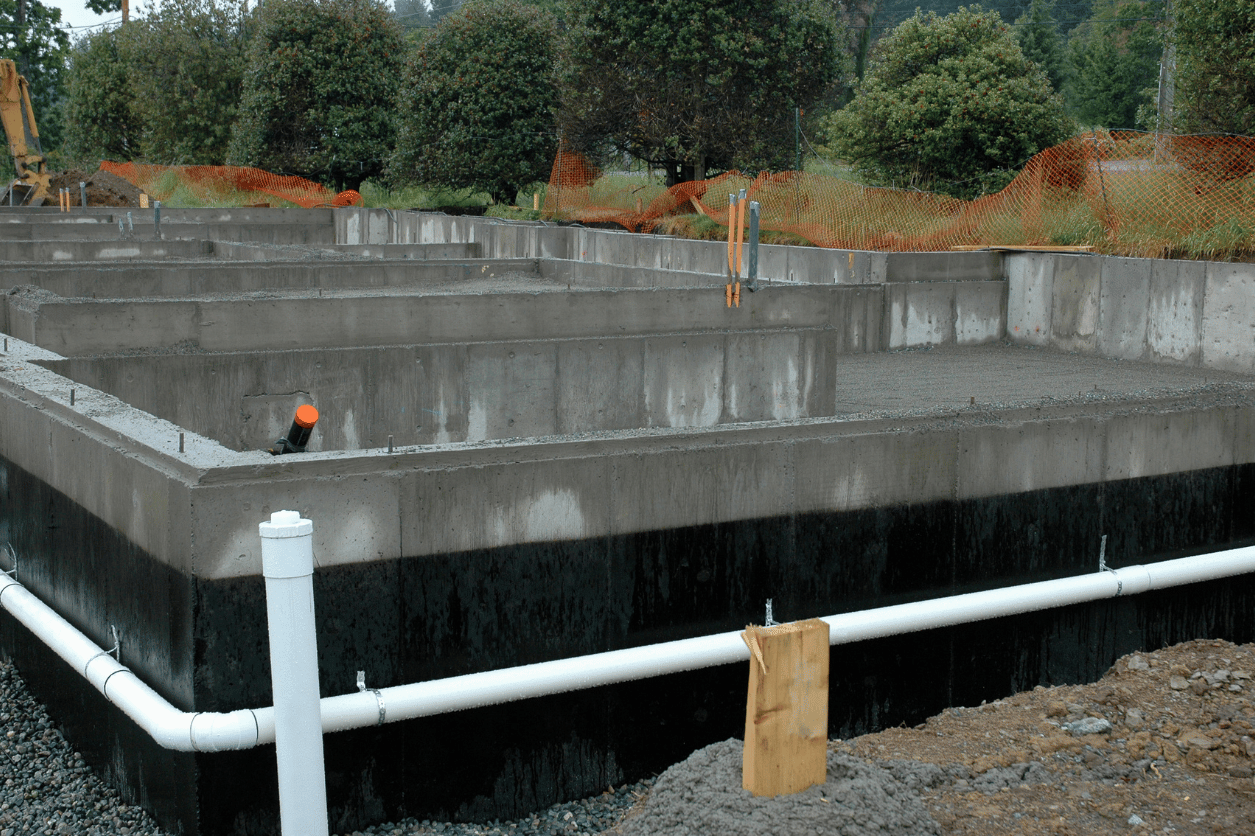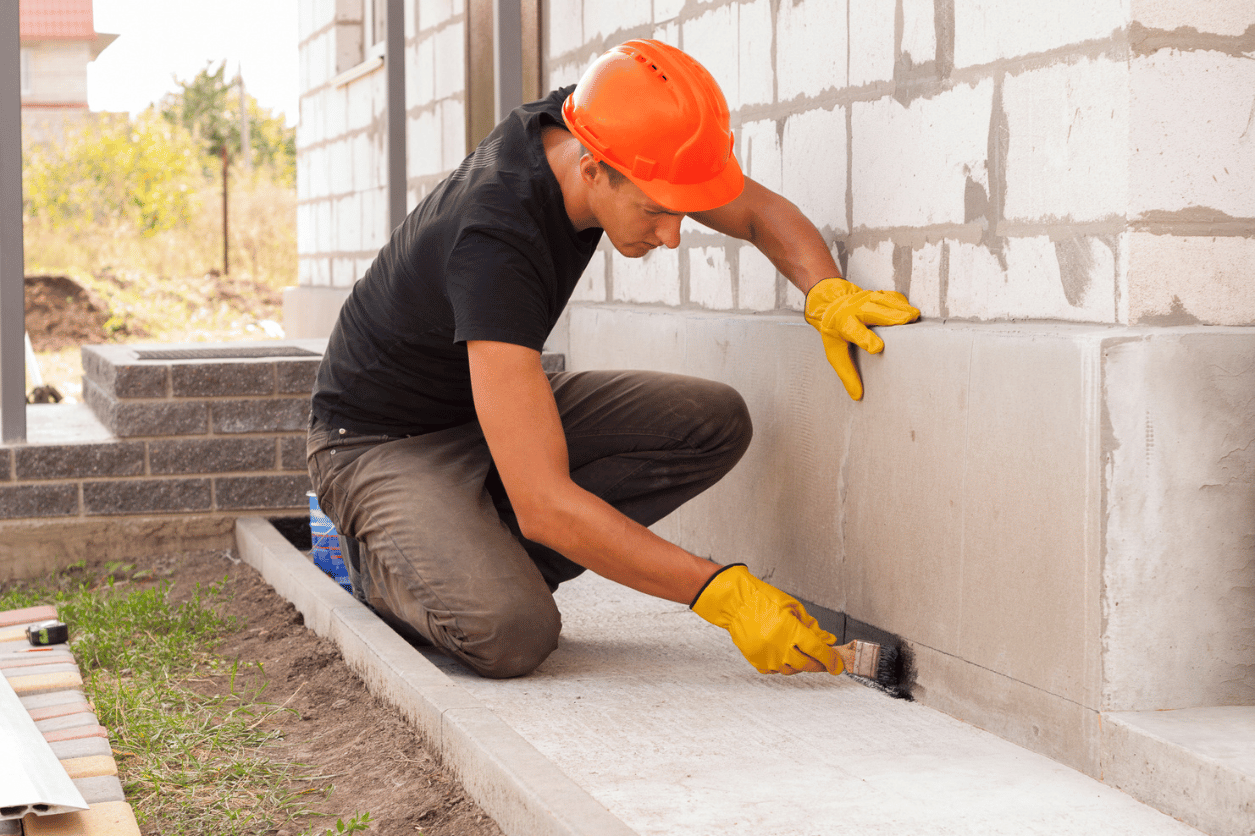
Going Deeper? Don’t Skip the Basement Underpinning
Basement Underpinning Going Deeper? Don’t Skip the Basement Underpinning Wed, 28 Jan 2026 When planning...
Basements are a valuable asset for many London properties, providing extra space where available land is so limited. However, making sure these spaces remain dry and free from moisture can be a major challenge, particularly in London’s damp climate. Basement tanking is an incredibly important process for protecting your property from water ingress and maintaining the integrity of your basement.
At BH Basements, we have extensive experience in structural waterproofing, offering a range of solutions to keep your basement dry and safe. So, why exactly is it important?
Basement tanking refers to the process of applying a waterproof barrier to the interior surfaces of basement walls and floors, preventing water ingress. This is particularly crucial for basements, which are highly susceptible to water penetration due to the constant pressure exerted by groundwater.
In London, where rainfall is frequent and groundwater levels can be high, basement tanking plays an essential role in protecting below-ground spaces from moisture and dampness. Tanking can help prevent serious problems like mould, structural damage, and waterlogging. These not only harm your property but also impact your health and safety.
At BH Basements, we carefully assess each project during the design stage, ensuring the best solution is selected for the specific requirements of the property.
Waterproofing a basement requires a tailored approach depending on the building’s structure, surrounding soil conditions, and the intended use of the space. Here are some common techniques used for basement tanking and waterproofing a basement:
Type A tanking involves applying a waterproof coating or membrane to the inner or outer surfaces of the basement. This creates a physical barrier that prevents water from entering the structure. It is particularly effective for older properties in London, where additional protection is needed to handle groundwater pressure.
Waterproof Membranes: These are thin layers of waterproof material applied to interior surfaces, preventing water penetration. Membranes can be made from materials like PVC, or EPDM.
Internal vs. External Tanking: Internal tanking involves coating the inside of the basement walls and floors, while external tanking applies a waterproof layer to the exterior of the structure, stopping water before it reaches the building.
With type B tanking, the waterproofing is built directly into the basement’s structure. This often involves using waterproof concrete, where waterproofing agents are added to the concrete mix itself, providing a crucial barrier throughout the entire basement structure.
Integral Waterproofing: Adding waterproofing compounds to the concrete during construction ensures that the entire structure is resistant to water ingress. This method is ideal for new London basements where a building is being constructed from scratch.
Type C tanking involves installing a cavity drainage system within the basement to manage any water that penetrates the outer layers of the structure. A network of drainage channels and pipes is installed to collect water and redirect it away from the building, preventing water from accumulating within the basement.
Cavity Drainage Systems: It works by collecting and diverting water away, often using waterproof membranes with drainage to ensure comprehensive protection. Cavity drainage is particularly effective in Central London, where groundwater levels can fluctuate.
No two properties are alike, and the same applies to basement waterproofing needs. At BH Basements, we design every tanking system, and each system is developed by a CSSW (Certificated Surveyor in Structural Waterproofing) qualified individual. This guarantees that every aspect of the tanking solution meets the unique needs of your property.
We also collaborate with market-leading external tanking companies when necessary to ensure we offer the most suitable solutions for each project. By assessing factors such as cost, suitability, and warranty status, we provide comprehensive solutions that keep your basement dry and safe for the long-term.
Tanking delivers several benefits that go beyond simply keeping the area dry. It ensures the safety, usability, and longevity of your below-ground space, which is particularly important in London properties where space is limited.
The most appropriate basement tanking solution will depend on various factors, including the type of property, the ground conditions, and how the space will be used. For example:
At BH Basements, our basement waterproofing expertise means we can guide you through every step of the process. We take pride in developing tailored solutions that fit the specific needs of each property, ensuring your basement remains dry and functional whatever the weather.
The UK’s climate can be challenging for basement construction. Ensuring that your basement remains dry is essential for maintaining its usability. Basement tanking is a key part of protecting your property, and with the right techniques and expertise, you can keep your basement free from damp and water damage.
We bring a wealth of experience in all forms of waterproofing. Our tailored solutions, designed by qualified experts, are built to withstand the unique challenges of London. Contact us today to learn how we can help ensure your property development stays dry, safe, and ready for whatever you have planned.
Structural Waterproofing
For further information about BH Basements, please do not hesitate to get in touch. We are always happy to help.
For more captivating insights and expert advice, delve into BH Basements’ diverse range of blog articles.

Basement Underpinning Going Deeper? Don’t Skip the Basement Underpinning Wed, 28 Jan 2026 When planning...

Basement Construction Expand Your Home with Basement Construction London Wed, 21 Jan 2026 Space in...

FoundationWaterproofing Prevent Rot and Ensure Longevity with Foundation Waterproofing Wed, 14 Jan 2026 For any...